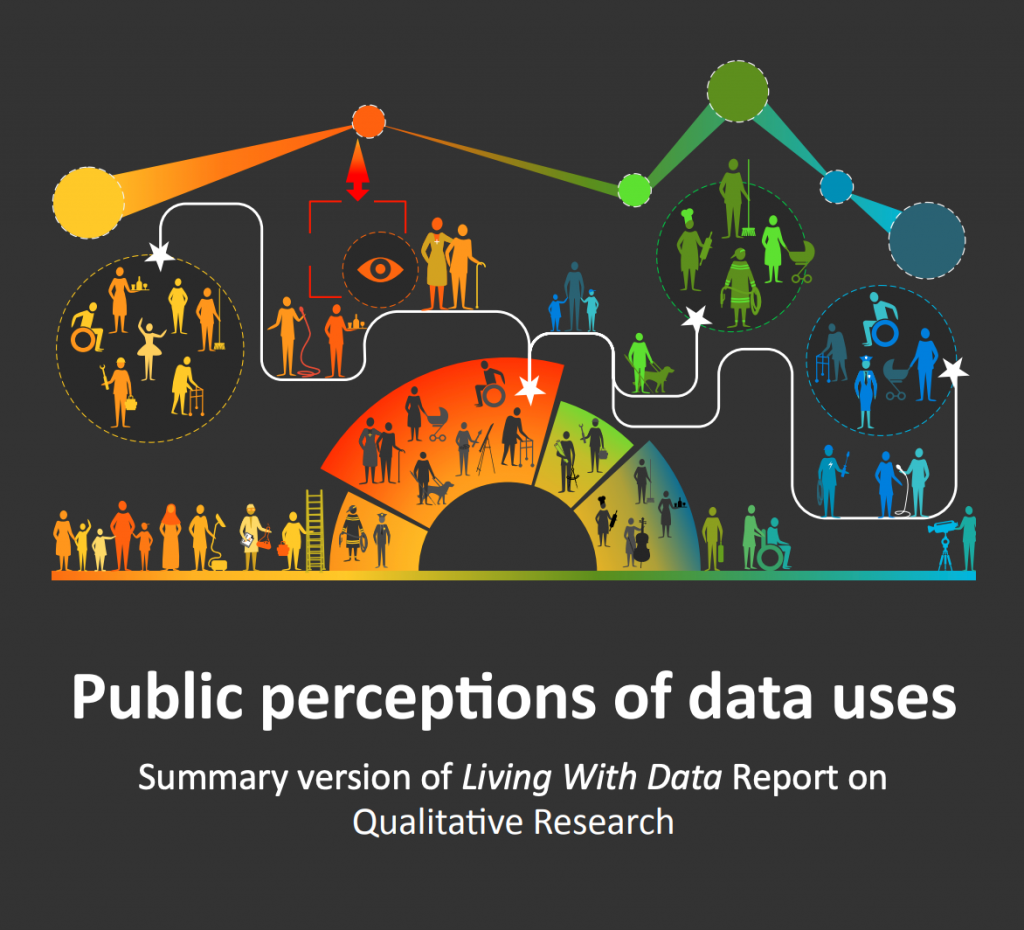Findings from Living With Data interviews and focus groups
Home >

Living With Data researchers have launched a report summarising the key findings from interviews and focus groups with 112 members of the public, most of which took place in 2021.
Key findings include:
- There’s a relationship between what people think about fair data uses and what they think about inequalities. Some of our participants felt that data uses were fair if they did not affect different groups unequally. If data uses negatively affected or discriminated against already disadvantaged or minority groups, they were seen as unfair. Participants wanted data uses not to discriminate.
- We found widespread concern about the potential for data systems to have negative consequences for people from disadvantaged and minority groups, for example because they are hard for some groups to use or engage with. Without explicitly using the term, a lot of participants appeared to be aware that data uses can reinforce inequalities, and that some data uses are more likely than others to deepen inequalities.
- We found that imagining played an important role in participants’ perceptions of data uses. By imagining, we mean building or creating a mental image of something that is not present at the moment of expressing an opinion. We are not suggesting that the things that participants imagined were imaginary – that is, existing only in the imagination. Rather, participants imagined, supposed and assumed things to fill in assumed gaps. We think that historical data misuses, security breaches and lack of transparency may lead participants to assume that there must be information missing from accounts of data uses, and they imagined to fill in real or imagined gaps.
- Participants drew on their everyday life experiences to ‘fill the gaps’ between the accounts of data uses that we shared with them and what they imagined happens in practice or might happen to data in the future. Everyday experiences were an important resource that participants drew on in order to understand the specific public sector data uses that we discussed with them.
- Sometimes people don’t understand data uses. The involvement of third party or commercial organisations in public sector data processes was particularly confusing for participants. Lack of clarity about contractual arrangements leads to confusion, which in turn leads to concern.